"Who needs a 57-inch curved MiniLED gaming monitor?" asks Acer, with 240Hz OLED alternatives in tow for CES 2024
Acer's latest flagship gaming monitor is a 57-inch behemoth supporting a 7680x2160 resolution at 120Hz.
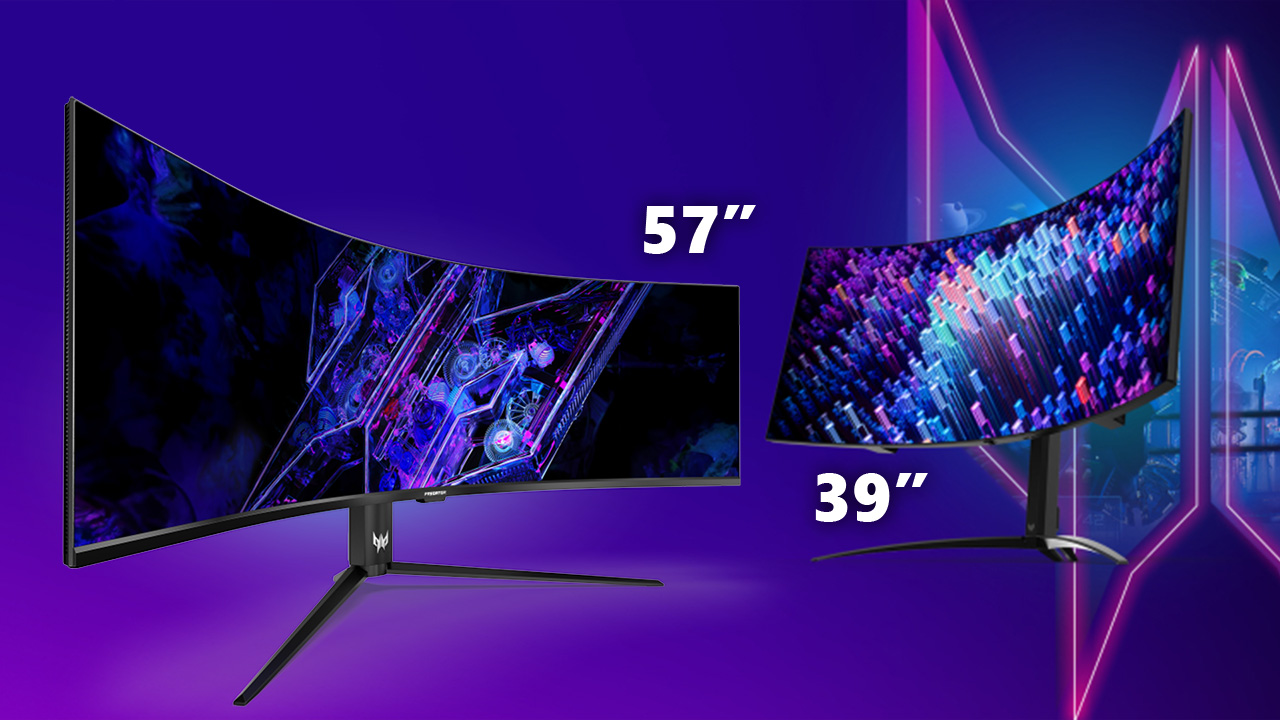
What you need to know
- Acer previews four Predator gaming monitors ahead of CES 2024: a massive 57-inch MiniLED Z57, a 34-inch MiniLED X34 V3, and two OLED displays, the 39-inch X39 and 34-inch X34 X.
- Aimed at hardcore gamers with premium curved panels, these monitors boast high refresh rates, resolutions, and HDR support.
- Set for release in Q2 2024, prices range from $899.99 to $2,499.99.
We're a few days away from CES 2024 (Consumer Electronics Show), but that doesn't mean you can't get a sneak peek at what each brand is planning, and Acer is apparently pulling up with a 'go big or go home' attitude with its latest gaming monitors. The show officially doesn't start until January 9, but these four Predator-branded screens already offer some specifications for their outlandish features, including the massive Predator Z57 with a curved 57-inch MiniLED panel.
A second, smaller MiniLED option, the 34-inch Predator X34 V3, has been unveiled alongside two OLED alternatives, a 39-inch Predator X39 and a 34-inch Predator X34 X. Confused by the naming scheme yet? You're not the only one. All four gaming monitors have been lumped together since they're targeting 'hardcore gamers' as part of a premium range of curved panels designed for those with plentiful desk space and craving only the finest display tech.
Whether OLED vs. MiniLED is worth it for your next monitor is up to you, but CES has hardly ever been known as the place for finding affordable budget tech, so let's dig into Acer's claims.
Curved MiniLED at 57-inch or a measly 34-inch?
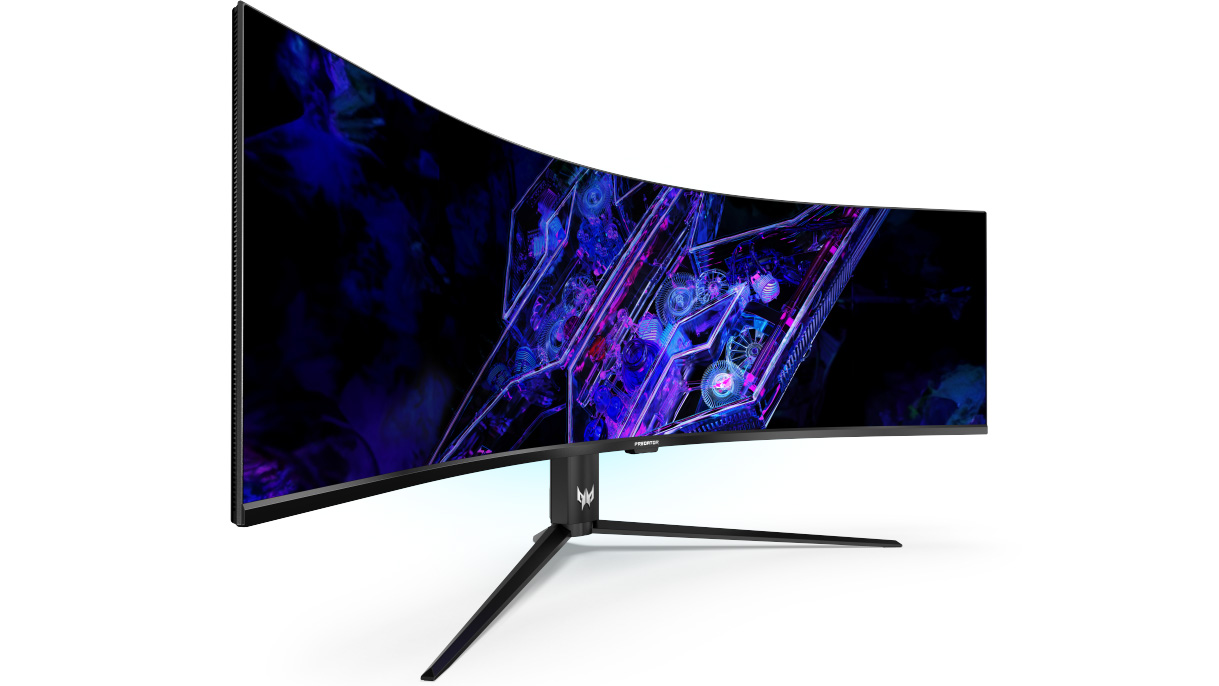
Ah yes, just what my desk has been missing: 57 inches of curved MiniLED gaming. The Acer Predator Z57 is a complete monster with a 32:9 aspect ratio and 1000R curvature, wrapping around your peripheral vision with a smooth 120Hz refresh rate. Yes, 32:9 does seem excessive, but Acer includes PBP (picture by picture) support to show two 16:9 sources simultaneously, or you could use FancyZones in PowerToys as a more robust window management solution.
Acer's Predator gaming subbrand is hardly targeting office workers, anyway, so this DUHD (7680x2160) resolution uses a 2304-zone MiniLED setup entirely to offer the best visual fidelity it can for games at this size. VESA DisplayHDR 1000 support pairs with a max brightness of 1000 nits, though colors are only listed as 'highly accurate' with a DCI-P3 score of 98%, so we can't be sure about AdobeRGB yet. 2x HDMI 2.1 ports support modern consoles like Xbox Series X and DisplayPort 1.4 alongside USB-C for modern graphics cards and laptops, allowing for smooth refresh rates and the latest HDR support.
- The Acer Predator Z57 will be available in North America in Q2 2024, starting at $2,499.99.
As gigantic as it is, the Predator Z57 still supports 100x100 VESA mounts with tilt and swivel adjustment for hanging on suitable wall brackets or robust monitor arms, which would undoubtedly save on desk space. 2x 10W speakers are built into the frame, too, with an audio out port and USB 3.2 hub for accessories. If curved monitors are tempting you, it's a convincing option.
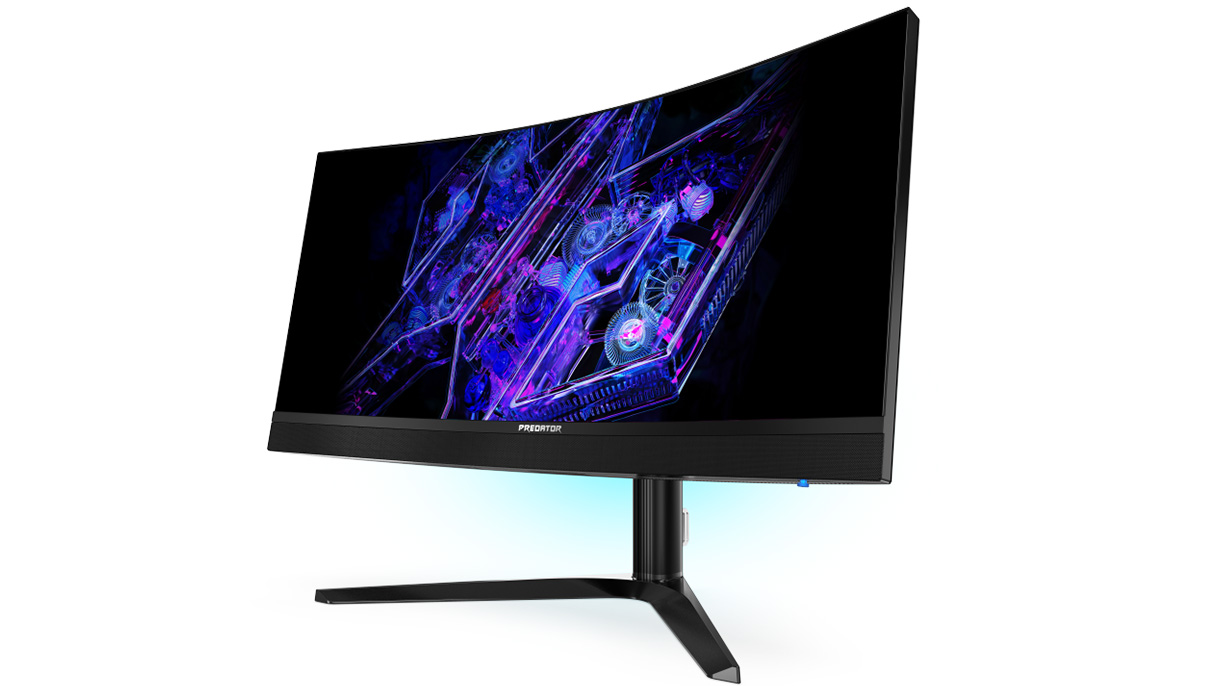
A more reasonably sized MiniLED alternative, the Acer Predator X34 V3, as you might expect, is the third version of its long-running 34-inch gaming monitor with a standard 21:9 ultrawide ratio. Molded to a 1500R rating, it's a little less curved than its giant X57 sibling, but it's also much smaller, so the effect would hardly be lost by a noticeable degree. Featuring a QHD (3440x1440) resolution, it potentially targets the next most popular option, taking over if gamers graduate from 1080p.
Get the Windows Central Newsletter
All the latest news, reviews, and guides for Windows and Xbox diehards.
- The Acer Predator X34 V3 will be available in North America in Q2 2024, starting at $899.99.
DCI-P3 color accuracy is slightly lower at 94%, but you still get VESA DisplayHDR 1000 support and a boost of up to 180Hz refresh rates for ultra-smooth gaming with a 1ms response rate. It's a more reasonable pick, and the caveats aren't too severe, though you get standard HDMI 2.0 ports instead of 2.1 and dual 5W speakers instead of 10W. However, targeting 1440p with support for anything above 144Hz is ideal for the new middle ground of PC gaming.
240Hz gaming on curved OLEDs
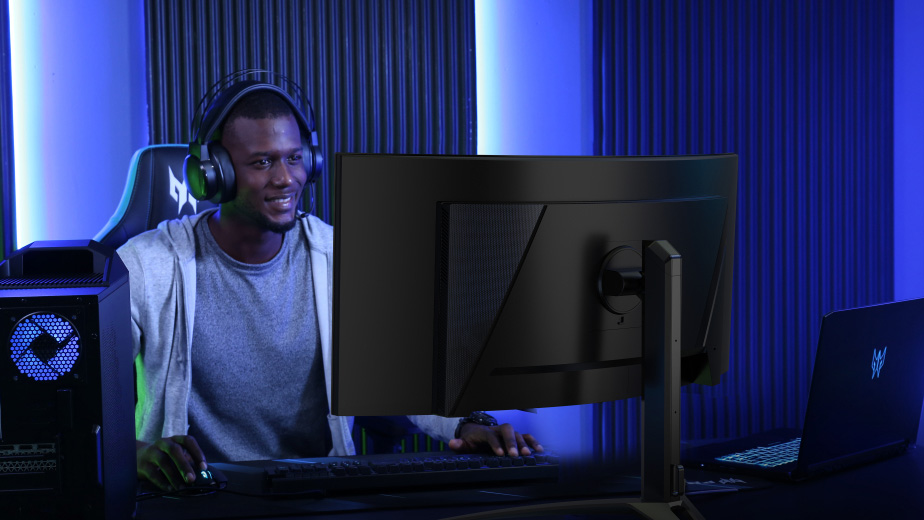
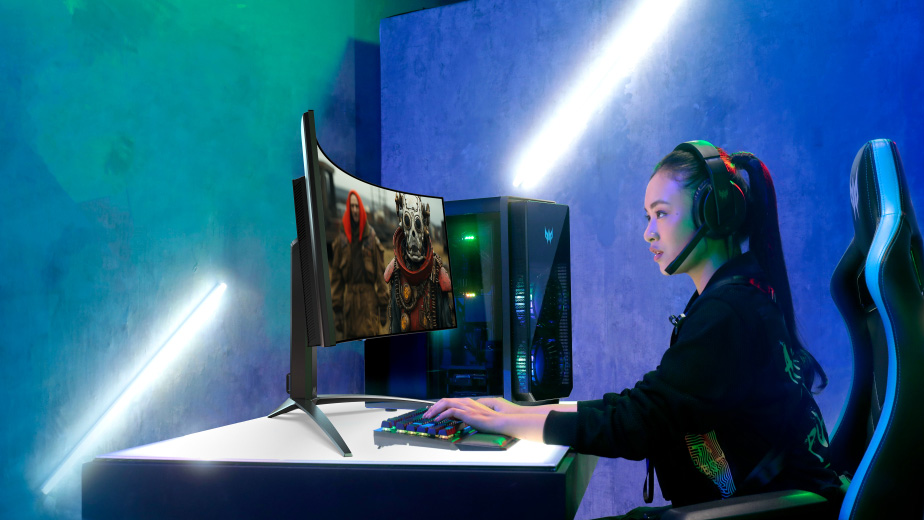
OLED panels don't feel quite as cutting edge in 2024, but they're still a massive improvement over traditional TFT LCD monitors if they match or beat the response times and resolution. They're still a personal preference for me if I can get my hands on them for a reasonable price. Acer has two on the larger side to show off at CES: The 39-inch Predator X39 and the 34-inch Predator X34 X. Both are 240Hz curved gaming monitors with UWQHD (3440x1440) resolutions, sticking to 21:9 ultrawide ratios and packing a lightning-fast 0.01 response time.
- The Acer Predator X39 will be available in North America in Q2 2024, starting at $1,499.99.
- The Acer Predator X34 X will be available in North America in Q2 2024, starting at $1,299.99.
An aggressive 800R curvature should seriously immerse any gamer since the screen is practically wrapped around their head. VESA DisplayHDR True Black 400 is an option for those who want it (single-player games only, thanks,) and the highest DCI-P3 rating so far of 99% color accuracy makes both a viable option for content creators looking to edit images and video with a near-perfect gamut.
Editor-in-Chief Daniel Rubino and Tech & Gaming Editor Rebecca Spear will both be on the floor at CES 2024 in Las Vegas next week and if these monitors look as good in person as they sound, we'll bring you some first-hand impressions.

Ben is a Senior Editor at Windows Central, covering everything related to technology hardware and software. He regularly goes hands-on with the latest Windows laptops, components inside custom gaming desktops, and any accessory compatible with PC and Xbox. His lifelong obsession with dismantling gadgets to see how they work led him to pursue a career in tech-centric journalism after a decade of experience in electronics retail and tech support.
